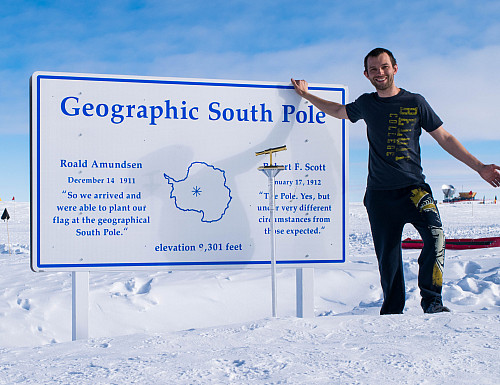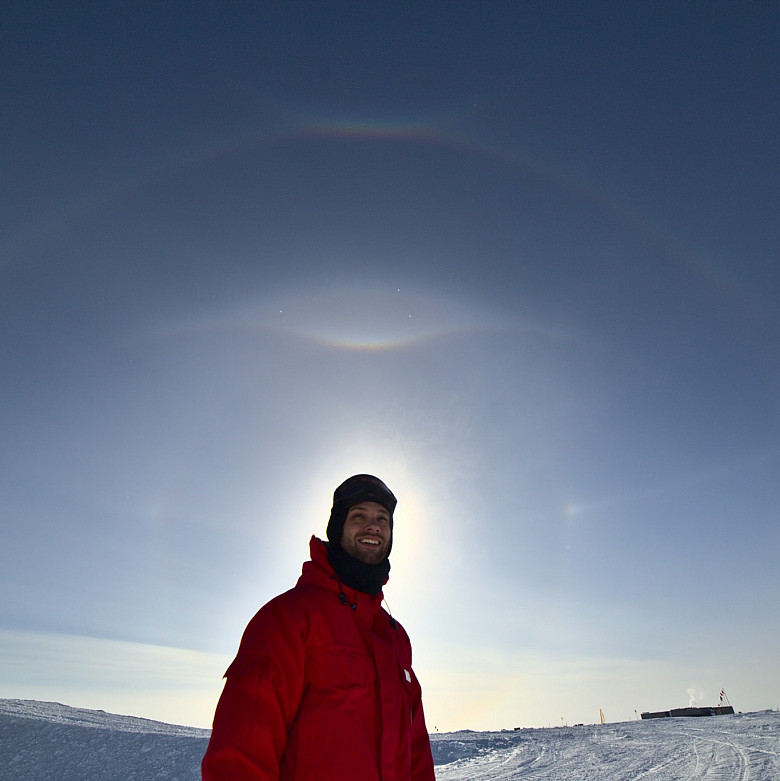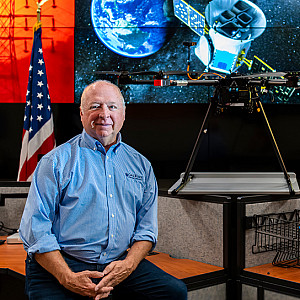What Just Happened: Studying the Big Bang’s Afterglow to Find Answers
When Milwaukee native Michael Cumrine was considering where to go to college, he knew wanted to study science. He just didn’t know which science.
A liberal arts institution seemed to make the most sense; he’d have more flexibility before having to choose a focus. When Beloit College seemed to fit the bill during an initial campus interview, a return visit for a scholarship interview clinched the deal. “I can’t say exactly why, but the feel of the campus just seemed right,” he said. Plus, he’d be able to work in the campus scene shop to continue the theater tech work he’d done in high school.
In fact, Mike’s work-study job allowed him to do a lot more than was possible in high school. “The mechanical skills I developed in Beloit’s scene shop have not only stayed with me, but have been extremely helpful in the research I do now. Physicists who don’t have experience handling tools are disadvantaged when they come into graduate school.”
Like many physics majors, Mike’s plan was to begin graduate studies fresh out of undergraduate college. But he took a different route. First, a summer job at Fermilab performing manual labor gave him insight by allowing him to interact with Fermilab’s scientists and attend lectures.
Next came a Science Undergraduate Laboratory Internship (SULI) at the Lawrence Berkeley National Laboratory. SULIs encourage undergraduates and recent graduates to pursue STEM careers by providing them with internships in U.S. Department of Energy research laboratories.
At the Lawrence Berkeley lab, Mike’s ability to learn how to learn, something he developed at Beloit, helped him navigate unfamiliar science and problems. While rough at the start, the experience let Mike know that this was what he wanted to do.

Mike’s research group is looking for clues about the process that might have taken place in the instant immediately following the Big Bang. “As one of my advisors likes to remind us, the universe is under no obligation to be structured or to tell us how to measure it. It’s therefore really satisfying when we can add a bit more to our understanding of how the universe came to be.”
Mike’s plan is to continue to focus on research and design once he completes his PhD, although with his skill set and experience, he could also work in radio frequency engineering. “I want to continue to look at things I don’t understand and to do that as long as I can, recognizing that at some point, my career path might logically also involve project management.”
His advice for current and future Beloit College students? “Don’t be discouraged if you don’t get into graduate school straight away. As a Beloit College graduate, you’ll have the meta-cognitive skills you’ll need when ultimately you do go to graduate school. And in the meantime, you’ll be able to put those skills to good use as you acquire the experience that will make you a successful applicant.”



